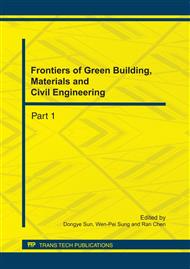p.3942
p.3946
p.3950
p.3954
p.3958
p.3963
p.3967
p.3971
p.3975
Analysis and Countermeasure of Transformer Faults Caused by Corrosive Sulfur
Abstract:
Based on electrical and chemical analysis in oils of some fault transformers in Shenzhen, it indicates that the corrosive sulfur contained in insulating oils may cause faults. Corrosive sulfur would react to copper wire and engender Cu2S during the operation of transformer. Because of the electric characteristic of Cu2S, this substance will penetrate and pollute insulating paper of the wire, and then weaken the insulation intensity. At last it would wear out coil insulation. Experiments indicate that adding passivator to insulating oil is an effective method to solve the problem. Passivator can form a protection layer on the surface of copper, which can avoid copper corrupting and can stop copper deposition in the presence of potentially corrosive sulfur compounds as well.
Info:
Periodical:
Pages:
3958-3962
Citation:
Online since:
July 2011
Authors:
Keywords:
Price:
Сopyright:
© 2011 Trans Tech Publications Ltd. All Rights Reserved
Share:
Citation:


